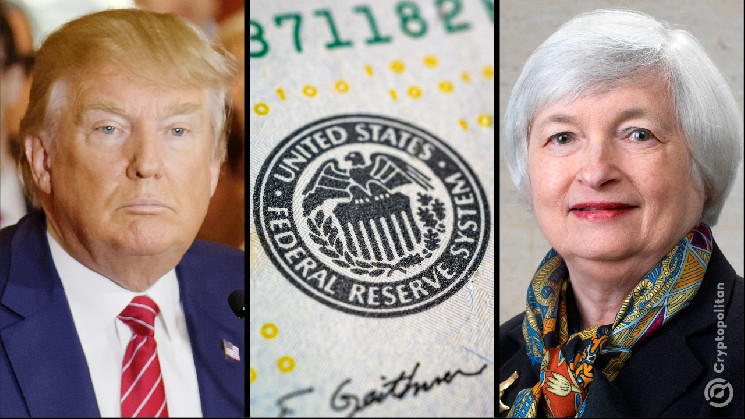U.S. Treasury Secretary Janet Yellen Warns Against Trump’s Interference in Banking Regulations
As the transition of power approaches, U.S. Treasury Secretary Janet Yellen has issued a stern warning to President-elect Donald Trump and his administration: do not meddle in the regulation of the American banking system. Reports have surfaced that Trump’s transition team is considering significant cuts or mergers within Washington’s top financial oversight agencies, sparking concerns about the potential dismantling of crucial regulations that have been established over decades.
Yellen, who is preparing to hand over the Treasury keys to Trump’s nominee Scott Bessent, emphasized that while she is not opposed to change, radical interference in the banking system is unacceptable. She stressed the importance of maintaining core regulations on banks’ capital, liquidity, and risk-taking, citing them as essential components for a stable banking system and economy.
The recent collapses of Silicon Valley Bank and Signature Bank in March 2023 served as poignant reminders of the consequences of inadequate bank supervision. Yellen pointed to these failures as evidence of the necessity of stringent oversight and deposit insurance to prevent another financial meltdown.
The Dodd-Frank Act, enacted in response to the 2008 financial crisis, established key regulatory bodies such as the Financial Stability Oversight Council, the Federal Reserve’s financial stability division, and the Treasury’s Office of Financial Research. Despite initial criticism that the legislation would stifle banks, Yellen defended its effectiveness, noting that U.S. banks have thrived under its regulations.
While there have been discussions about potentially merging some regulatory agencies, Yellen asserted that dismantling these safeguards would be a risky move. The elimination of the Office of Thrift Supervision post-2008 did not result in harm, but further consolidation has not been a focus for Yellen.
Trump’s approach to financial oversight may align with his broader economic agenda, which includes revisiting the 2017 Tax Cuts and Jobs Act (TCJA) and proposing new tax policies. As 2025 approaches, uncertainty surrounds Trump’s tax policies, with financial advisors urging clients to prepare for potential changes to estate taxes and other provisions.
The TCJA, which brought significant changes to corporate and individual tax rates in 2017, could see further modifications under Trump’s administration. Tax advisors are wary of last-minute legislative surprises, recalling the confusion surrounding the qualified business income deduction introduced in the TCJA.
In conclusion, Yellen’s message to Trump is clear: meddling in the banking system and dismantling key regulatory bodies could have dire consequences for the stability of the financial sector. As the transition of power unfolds, the future of financial oversight and tax policies remains uncertain, with potential implications for businesses and individuals alike.

